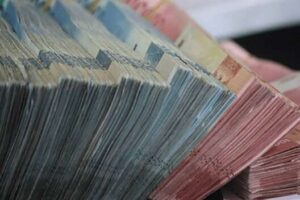
Argentine Economy Minister Sergio Masa said work on the establishment of a joint Argentine-Brazilian currency will begin as early as this week, the Argentine press reported.
“There is a decision to start studying the parameters necessary to create a common currency, this concerns everything from taxation issues to the size of the economies and the role of central banks,” Masa said in a conversation with Argentine journalists.
“The goal is to give impetus to regional trade and reduce dependence on the U.S. dollar,” the minister added.
“We have to explore the mechanisms of commercial integration. I am not going to speak with false expectations, because this is only the first step in the long journey that Latin America must take,” Masa stressed.
However, the project initiated by Argentina and Brazil is not limited to these two countries. Other countries in the region may join the initiative in the future.
The idea of creating a common currency for the two countries was voiced at a recent meeting between the presidents of Argentina and Brazil, Alberto Fernandez and Luiz Inácio Lula da Silva.
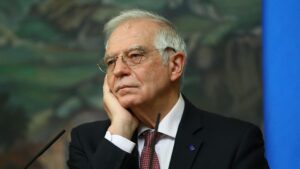
The European Union has already allocated nearly 50 billion euros in military, financial, economic and humanitarian aid to Ukraine, an additional 500 million euros in military aid has been approved, and the Union states intend to continue supporting Kiev, EU diplomacy chief Josep Borrel said.
“I can tell you that we will continue our support for Ukraine,” the EU high representative for foreign affairs said at the end of an EU Foreign Affairs Council meeting Monday in Brussels at which member state ministers discussed aid for the Ukrainian armed forces.
“Today we reached a political agreement on the seventh tranche of military assistance for an additional 500 million euros and another 45 million for measures to enable Ukrainian soldiers to receive training as part of our military support mission,” Borrell continued.
The European diplomacy chief noted preparations for an EU-Ukraine summit on February 3, “the first summit since Ukraine received candidate status” for EU membership.
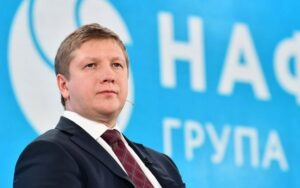
The Supreme Anti-Corruption Court (HACC) has denied the prosecutor’s request for a preventive measure in the form of detention with an alternative to a 365 million UAH bail for the former head of Naftogaz of Ukraine, Andrey Kobolev.
The court made a decision to that effect on Monday night.
“The petition for a measure of restraint in the form of detention against the suspect Kobolev to leave without satisfaction … The decision can be appealed in the appeal chamber of the SACC within five days from the moment of the announcement,” the judge announced.
As reported, a prosecutor of the Specialized Anti-Corruption Prosecutor’s Office and detectives of the National Anticorruption Bureau of Ukraine last week notified the former head of Naftogaz Andriy Kobolev of suspicion of abusing his official position while ensuring himself a 229m hryvnia bonus payment for the company’s victory in the Stockholm arbitration with Russia’s Gazprom.
According to the investigation, this amount considerably exceeds the normative amounts of such payments (37.48 mln hryvnyas).
The Stockholm arbitration in 2018-19 as a result of two disputes between the companies on the supply and transit of gas ruled that Gazprom had to pay additional $2.56 billion to NAC.
At the same time, the arbitration fully rejected Gazprom’s claims to Naftogaz on the “take or pay” condition for the period 2012-2017 in the amount of $56 billion.
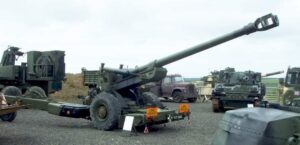
The Republic of Estonia has handed over to the Ukrainian Armed Forces all of its 155 mm howitzers, the General Staff of the Armed Forces of Ukraine said on Monday.
According to the General Staff, dozens of 155 mm FH-70 and 122 mm D-30 howitzers, thousands of 155 mm artillery shells, hundreds of M2 Karl-Gustaf anti-tank grenade launchers with ammunition, support equipment for artillery units were also transferred to Ukraine.
In addition, Estonia will continue to provide both basic and specialized training to the Ukrainian Armed Forces.
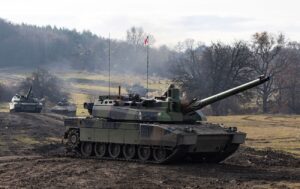
France does not rule out supplying Leclerc heavy combat tanks to Ukraine for support in the war against Russia, French President Emmanuel Macron said at a press conference with German Chancellor Olaf Scholz in Paris, Le Figaro reported.
“Regarding Leclerc, I asked the minister of the armed forces to work on this. Nothing is ruled out, and it is really being evaluated collectively,” the French president said.
For his part, Scholz, responding to a question about German Leopard tanks, said: “The way we have acted in the past is always closely coordinated with our friends and allies, and we will continue to act according to the specific situation.”
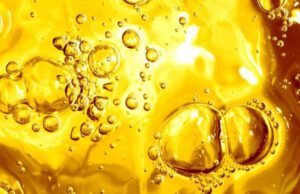
Kernel, one of the largest Ukrainian agro-industrial groups, in the second quarter of fiscal 2023 (FY, Q2 – September-December 2022) decreased its sales of vegetable oils (sunflower and rapeseed) by 17% as compared to the same period of the previous FY – from 416,500 tons to 344,700 tons.
According to the report published on the company’s website, the total processing of oilseeds in the specified period decreased by 34%, from 985.4 thousand tons to 653.2 thousand tons.
The holding explained the decrease of production and sales volumes by the stoppage of three of its nine oil extraction plants (IEP) in Kharkiv region, caused by the military risks from the Russian Federation. In addition, the group’s production performance was affected by Russian rocket attacks on Ukrainian critical infrastructure, which led to power outages across the country, the report said.
“Due to regular power outages, Kernel had to temporarily suspend processing operations at two of its oilseed processing plants during November-December 2022, while the remaining four oil extraction plants (OEPs) operated relatively steadily thanks to cogeneration thermal power plants,” the holding explained in the report.
According to the report for the first half of FY 2023 (July – December 2022) Kernel sold 546.8 thousand tons of sunflower and rapeseed oil (-14% compared to the same period of 2022) and processed 1.11 million tons of oilseeds (-24%).
The Group halved the volume of crops supplied to its elevators in the second quarter of FY 2023 as compared to the second quarter of FY 2022 to 1.51 million tons. The company delivered 2.0 million tons of raw agricultural products to elevators in 6 months of FY 2023 – by similar 50% less than in 6 months of FY 2022.
“Kernel” also noted that because of the military aggression of the Russian Federation in Ukraine, 18 of its employees were killed and 61 employees were injured. A total of 1,333 employees of the group participated in the war, of which 532 were demobilized and returned to work.
“In December 2022, one of the group’s MEZs in the Kharkiv region came under missile fire from Russia. Due to its location in a high-risk area and constant shelling in the region, it is not possible at this time to properly assess and evaluate the damage to the facility. No other Kernel infrastructure was damaged during the reporting period,” the report states.
Kernel’s total exports of crops in the second quarter of FY 2023 decreased by 56% compared to the same period last fiscal year – to 1.52 million tons, and in the first half of the year – by 61%, to 2.25 million tons. Export was carried out mainly within the framework of Istanbul grain deal, while negligible volume of agricultural products was exported through alternative channels (railroad, river, automobile transport).
The holding said in a report that in December 2022 it successfully completed the acquisition of a 100% stake in the Pivdennyi oil transshipment terminal (Odessa region, Black Sea) for $19.8 mln.
“Kernel is the world’s largest producer and seller of bottled sunflower oil in Ukraine, accounting for 7% of world production and 12% of exports. In addition, the company was involved in other agricultural products cultivation and sales.
The largest co-owner of Kernel, through Namsen Ltd. is Ukrainian businessman Andrei Verevskyi, with a 39.3% stake.
In FY2022 (July-2021 – June-2022), the holding posted net loss of $41 mln against $506 mln net profit in the previous FY. Its revenue decreased by 5% – to $5.332 bln, while EBITDA decreased 3.7 times – to $220 mln.